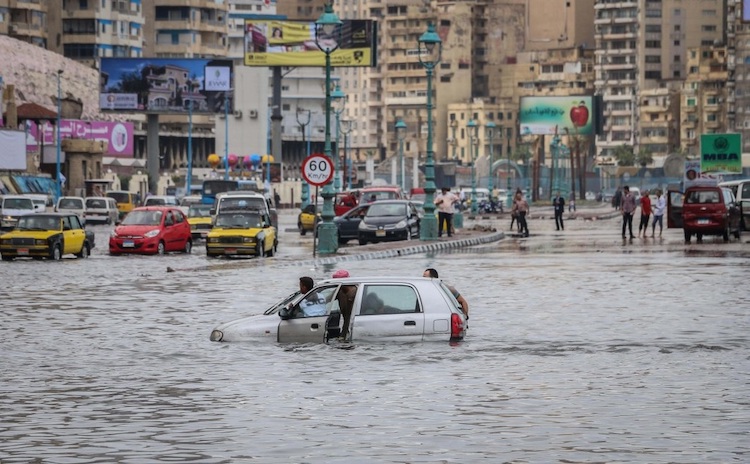By Lisa Vives, Global Information Network
NEW YORK (IDN) — The Egyptian coastal resort of Sharm el-Sheikh is brimming with delegates, organizers and observers – here to take part in the UN Climate Conference, better known by its acronym “COP27” (Conference of the Parties).
This year’s conference will be an “African COP” where the positions of African countries on issues like finance for adapting to climate change or adopting renewable energy sources will be central to the talks.
The climate summit opened November 6, with an agreement to discuss compensating poor nations for mounting damage linked to global warming, placing the controversial topic on the agenda for the first time since climate talks began decades ago.
For years, wealthy nations had rejected official discussions on what is referred to as loss and damage, the term used to describe rich nations paying out funds to help poor countries cope with the consequences of global warming for which they bear little blame.
Last year in Glasgow, high-income nations, including the United States and the European Union blocked a proposal for a loss and damage financing body, instead supporting a three-year dialogue for funding discussions.
But pressure to address the issue has been increasing as weather calamities mount, including this year’s floods in Pakistan that caused economic losses of more than $30 billion and left hundreds of thousands homeless.
The UN weather agency says 116 million people in Africa’s coastal states and islands face rising sea-levels and by 2050 African nations will need to spend $50 billion every year on climate-related impacts.
Nearly 200 nations will be in Sharm el-Sheikh but talks will be dominated by the growing need to support virtually blameless poor nations where lives are already being claimed and economies devastated.
US President Joe Biden is expected to arrive later in the week.
In a worst-case scenario, according to the UN Climate Panel, in 2050, “the sea will rise by one meter”. Then it will swallow “a third of the ultra-fertile land of the Nile Delta and historic cities like Alexandria will be flooded”.
Every year, the city of Alexander the Great sinks by three millimeters, weakened by the Nile dams upstream that prevent silt from consolidating its soil and by offshore gas drilling.
In a best-case scenario, if the Mediterranean rises only 50 centimeters, as other Egyptian and UN studies estimate, “30% of Alexandria will be flooded, 1.5 million or more people will be displaced, 195,000 jobs will be destroyed, and losses in land and construction will reach $30 trillion.” [IDN-InDepthNews — 07 November 2022]
Photo: Alexandria’s flooded Corniche on 25 October 2015. Credit: Asmaa Abdelatif/Youm7.
IDN is the flagship agency of the Non-profit International Press Syndicate.
This article is published under the Creative Commons Attribution 4.0 International licence. You are free to share, remix, tweak and build upon it non-commercially. Please give due credit.

